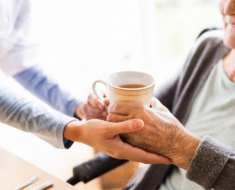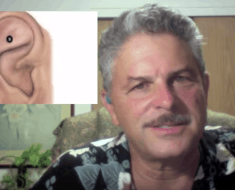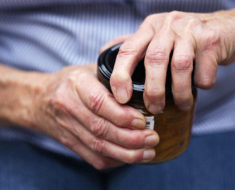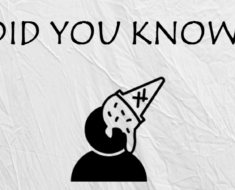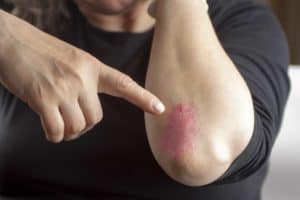
Source: https://cdn.prod-carehubs.net/
Psoriasis is a skin disease marked by inflamed and itchy red patches of skin that can be found in small or large areas of the body – Psoriatic Arthritis (PsA) is a chronic inflammatory ailment affecting people with psoriasis, the joints being the target of the immune attack. Not all who have psoriasis will develop PsA, around 10 to 30 percent of men and women between the ages of 20 and 50 years.
What Causes Psoriatic Arthritis?
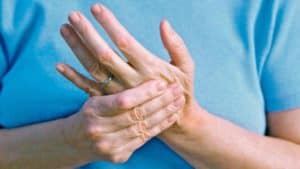
Source: https://images.agoramedia.com/
Simply put, it happens when your body’s immune system attacks healthy cells and tissues. However, it’s not really clear as to what causes the immune system to attack – but some studies link PsA to genetics and environmental factors. Having psoriasis puts you at greater risk for developing PsA, especially if you have psoriasis lesions in your nails. Sadly, there is no cure for PsA, though there are treatments available to help you control the disease.
Are There Different Types Of Psoriatic Arthritis?
There are basically two types, depending on how severe and how many joints are affected. Oligoarticular PsA is the milder type that affects four or less joints, and Polyarticular PsA affects more than four joints, and is more severe.
What Are The Early Signs And Symptoms Of PsA?
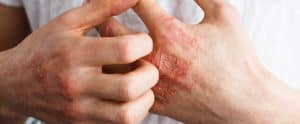
Source: https://orthosportsmed.com/
Psoriasis and PsA get worse over time, though there are periods when their symptoms improve slightly or go into remission. Here are some signs to watch out for:
- Pain and swelling in the joints
- Pain in and around the feet and ankles
- Pitted nails that appear like a fungal infection
- Nail separation (falling-off)
- Inflamed joints that is hot to the touch
- Lower back pain
- Eye irritation and inflammation
- Extreme fatigue
What Medications Can Help

Source: https://www.healthline.com/
Non-Steroidal Anti-Inflammatory Drugs
This is the most common medication to treat mild PsA, and are easily available over the counter. Some of the common ones are ibuprofen, naproxen, aspirin, and other generic brands.
Traditional Disease-Modifying Anti-Rheumatic Drugs
These are drugs that can help slow or stop the inflammatory process. Remember that damaged joints if left untreated can lead to long-term health effects.
Corticosteroids
Steroids or glucocorticoids, taken through injections, have a stronger effect to reduce inflammation in the body, but doctors only prescribe them when really needed as they can make your skin rash worse. Long term usage could have serious side effects such as hypertension, brittle bones, diabetes, and abnormal weight gain.
Are There Other Remedies?

Source: https://cdn1.medicalnewstoday.com/
Yes, there are other remedies and treatments aside from medication that can slow down PsA. Try some of these treatments:
- Massage therapy. There are specially trained therapists to help clients with PsA. A Massage session can ease tense muscles and relieve joint discomfort.
- Acupressure. This alternative remedy simply applying pressure onto different parts of the body to alleviate pain.
- Acupuncture. A specialist uses this treatment by inserting special thin needles into specific pressure points to relieve joint pain. Eastern-type of remedy done for centuries.
- Natural remedies like ginger, turmeric, and aloe vera. Ginger is well known for its anti-inflammatory properties. Taking turmeric capsules greatly decrease inflammation of the joints. Aloe vera gel can provide relief from inflamed areas of the skin…not to be ingested.
There you have it. If you are living with PsA, these medications and remedies should help address the pain and reduce the inflammation.
Emotional Effects Of PsA
Living with PsA is not easy, and is more complicated than the pain, stiffness, and fatigue. Stress, anxiety, frustration, embarrassment, are some of the emotional drawbacks that come with any illness or affliction, more so with PsA. It may not cure your condition, but having a say in how you handle it positively will surely help a lot. Here are some suggestions to consider:
Manage Depression
Depression may accompany your condition, and it is best to know its symptoms and how to treat it. It may come in the form of guilt, anger, sadness, disinterest in normally enjoyable things, etc. Some signs could be avoiding friends and family, trouble sleeping, trouble making decisions, mood swings, and weight loss or gain. There is medication to help address depression, but at times all you need is moral support.
Tame Anxiety And Stress
With PsA, anxiety can lead to poor sleep, and even keep your treatment from working effectively. Stress can worsen or trigger symptoms, which will increase pain, which will add more stress. A vicious cycle of hurt.
Take Positive Action
Don’t just sulk at home, do something about it. Talk to your doctor or even a psychologist to help you cope, plan strategies, and remove negativity. Stay active, good for the mood, and the joints. Consult your physician as to which exercises will be most beneficial. You may just walk around in a pool, try yoga or tai-chi, or simply meditate, de-stress with music, and so on.
Open Up And Stay Connected
People with more social activity and interactions tend to be healthier and live longer than those who are loners or anti-social. Support and love can treat pain and unpleasantness. Remember






